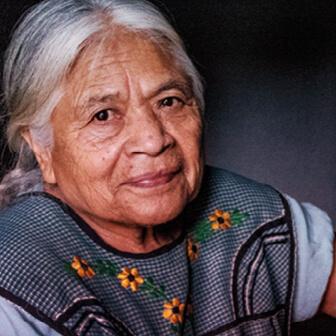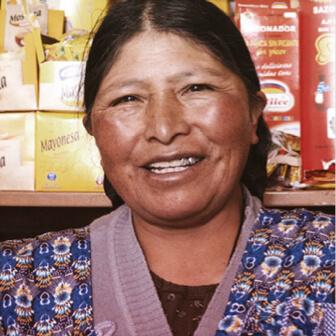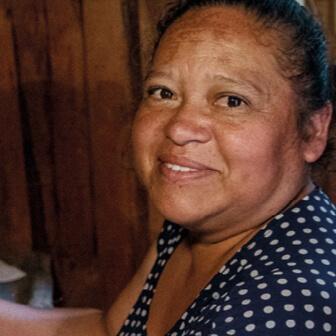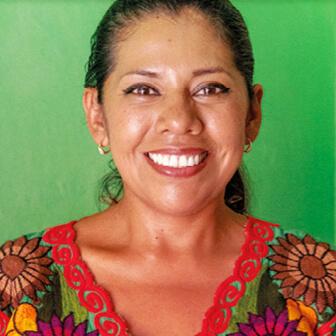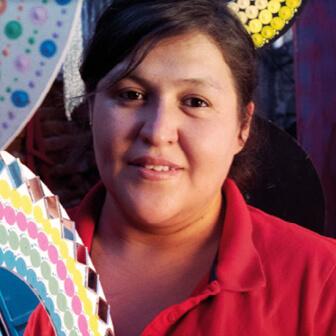Early Breast Cancer Diagnosis Saves Lives
22 February, 2023
Blog
Breast cancer is the most frequent cancer diagnosis in Latin American women, with more than 200,000 new cases diagnosed annually. Breast cancer kills almost 60,000 women every year. Although screening has proven to be highly effective, the percentage of women who are not screened remains high. A new study conducted by Pro Mujer and experts from CONICET provides an overview of this issue and the steps that can be taken to increase timely screening and diagnosis and decrease breast cancer deaths.
Buenos Aires, January 2023- Thousands of women die each year from breast cancer because they do not have full access to the health system or the knowledge they need. Currently, the majority of countries in Latin America report only 70% mammography coverage, the most effective proven imaging technology for a timely breast cancer diagnosis. A recent study conceived by Pro Mujer and implemented by experts Silvina Arrossi, senior researcher at CONICET; Lucila Szwarc, a postdoctoral fellow at CONICET; and Ana Mazzadi and Agustina Thorne, sociologists specializing in the subject, reveals the educational, social, and economic barriers that prevent a timely breast cancer diagnosis.
The study showed that a significant percentage of women in Latin America face obstacles to accessing mammograms, as well as the subsequent stages of breast cancer diagnosis and treatment. These barriers are associated with multiple factors, including:

- Political and social factors, including unequal access to education, employment, social protection, and health care policies.
- Structural conditions are tied to women’s socioeconomic status, as the evidence shows that low-income, unemployed, and rural women without access to the health care system have limited access to mammography screening.
- Intermediary determinants include patients’ personal characteristics, such as limited information about the benefits of mammography, an understanding of the absence of symptoms as the absence of disease, shame and possible stigma associated with breast cancer, as well as lack of time for check-ups due to the burden of domestic and professional responsibilities.
- There were also limitations related to the health system, especially in rural areas, as not all hospitals have mammography equipment available or include mammography as part of a structured program.
The participating sociologists also found that to raise awareness of breast cancer screening and early detection, it will be critical to:
- Increase the participation of and collaboration between government and civil society to establish positive relationships and communication between women and health care professionals. One way to address limited access to health care services is by integrating these services into the services offered by community organizations and NGOs, like Pro Mujer. Thanks to their established presence in rural communities, these institutions can increase women’s access to mammography screening by emphasizing timely breast cancer detection in their everyday activities.
- Creating public policies to ensure that vulnerable women can access free screening and treatment A qualitative research study conducted in Argentina found that breast cancer patients mentioned that receiving financial support to pay for transportation to the hospital was one of the key factors that allowed them to seek treatment. The same strategy can be used to increase women’s access to mammography screening, for example, to help rural women overcome geographic or financial barriers.
- Ensuring that the health system provides adequate care In Argentina, women diagnosed with breast cancer highlighted personalized and caring communication between the patient and the medical provider as a mechanism that facilitated their access and continuity of care, along with good treatment from technical, administrative, and nursing staff.
- Increase awareness via the school system A study carried out in rural schools in Mexico showed that implementing educational programs about breast cancer aimed at young girls in rural areas increased adolescent girls’ knowledge about the disease and encouraged intergenerational knowledge transfer with their female relatives.
As part of its efforts to translate these findings into real-world impact, Pro Mujer is committed to the health of women in Latin America, providing free check-ups and leading awareness campaigns on diseases that impact women, with a particular focus on breast cancer in several of its diagnosis, support, counseling, and guidance programs. Since it was founded in 1990, Pro Mujer has provided 10 million health services to women entrepreneurs and their families, helping to improve their quality of life. In 2022 alone, the organization provided 8,547 breast exams, 6,464 mammograms, 14,704 chatbot interactions about the disease, and 8,132 counseling appointments.
About Pro Mujer
For more than 32 years, Pro Mujer has provided services and tools to women in Latin America to help them reach their full potential and become agents of change in their communities.
The organization’s comprehensive, holistic model is focused on facilitating women’s financial inclusion in Latin America, expanding access to health services, and providing skilling and training opportunities.
Based on its extensive knowledge of the most pressing needs of women in Latin America, Pro Mujer designs innovative programs that seek to respond to issues such as gender-based violence and the digital gender gap. The organization is a pioneer in gender lens investing in Latin America and works to raise awareness of how it can be used to close existing gender gaps and boost productivity.
Pro Mujer’s work is closely aligned with the UN Sustainable Development Goals and contributes tangible results to the following SDGs: 1, 3, 4, 5, 8, 10, 11, and 16.
For more information, visit www.promujer.org.
Contact DetailsRamiro Zuccolo – ramiro.zuccolo@minerbacc.com – +54 11 2861-1050
